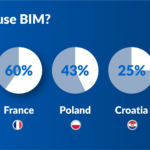Features - Business
Supporting the Government’s Full Fibre Broadband Commitment

The UK Government has made clear its ambitions to make access to full fibre connectivity the norm for every business and residential home across the country by 2033 – an uplift from the current 5% to 100% full fibre coverage in 15 years. In this article, we speak with Mark Collins, Director of Strategy & Public Affairs at CityFibre, about how industry can support this commitment.
Government support on this game-changing investment is a welcomed intervention for those who operate in the sector and for the rest of the UK population. Moreover, there are already a number of businesses ready to make this a reality – from altnets like ourselves, Hyperoptic and Gigaclear, to the incumbent, Openreach – but they need the help of construction partners who in return will get lengthy well-paid contracts as the UK digital infrastructure is transformed.
The construction involved will be colossal, and CityFibre’s part will see us reach five million homes by 2024 and many more by 2033. To put this into scale, by expanding our network in Edinburgh we will lay over 2,000km of new fibre cabling over a four-year period.
The current UK telecoms landscape means that the UK is behind the rest of Europe, and is 35th on the global rankings list for average connection speeds; we now have worse connectivity than Madagascar. The Government’s announcement means that we are addressing the disparity. However, the question is – what can industry do to help the Government realise its ambitions and bring the whole of UK up to gigabit speed?
To make this a reality, construction companies of all shapes and sizes must respond to recently announced Government consultations and take full advantage of this opportunity. Not only will this move provide job security for thousands of skilled and semi-skilled workers, but it will also add local value to the communities across the country. Full fibre is great for business – not just for those doing the work of laying it, but also for the businesses and homes who get access to the step-change in speed and reliability that full fibre brings.
CityFibre is a digital infrastructure provider, which has existing network assets across the country and is actively expanding in over 50 towns and cities in all regions of the UK. Only last month, we announced a £2.5Bn investment plan to extend the full fibre network, meaning that we have the backing and the mandate to get the work started. CityFibre and other alternatives are growing their share of the market, bolstering confidence that the bigger picture is changing for the better. This is great news for construction firms who can benefit from up to 15 years of certainty.
With this healthy competition comes an opportunity to coordinate a strategic approach to the delivery of our networks. Both commercial and residential construction operators have tremendous scope because they are essential in delivering fibre to the premises (FTTP) and have a particularly strong opportunity on new build developments.
A study by economic consultancy Regeneris, commissioned by CityFibre, examined ten areas of the UK economy in March and showed that billions of pounds of productivity, innovation and employment benefits could be unlocked by the construction of full fibre networks over the next 15 years.
According to researchers, the UK’s business community, particularly its small and medium sized companies, could stand to benefit enormously. Access to full fibre could unlock £4.5Bn in business productivity, innovation and access to new markets in these locations; a further £2.3Bn in growth could be driven from catalysing new business start-ups; while the increased ability for companies to support flexible working could add £1.9Bn. Similarly, by expanding the range of physical services that can be accessed digitally such as e-commerce and telecommuting, the nation’s consumers and workers could reduce their carbon emissions by over 2.3m tonnes.
The UK’s homeowners and wider property market can also expect to reap rewards. With access to reliable, high speed broadband becoming ever-more important to buyers, up to £7Bn could be added to the value of homes.
Tech firms, government, investors and digital service providers have a role to play in aiding progress by making sure that construction companies and the wider supply chain make the most of the full fibre rollout.
Construction firms who have weathered the economic climate and remained sustainable have only done so by focusing on more than turnover, a business approach that we share with them. This tech will power digital development for years to come, so the contracts need to be substantial and the quality needs to be high. This should not be a job done on the cheap – full fibre will power the UK for generations to come so the construction must focus on quality, and contractors should be rewarded with decent profit margins
Similarly, we will also be looking at the wider supply chain and the payment terms they have in place because we know cash flow is incredibly important to sub-contractors. The focus should be on getting this right from the off, and that includes focusing heavily on the tendering process and listening to the needs of contractors.
And, while skills shortages continue to be a worrisome subject for construction leaders, those firms that have invested in attracting and retaining new talent to counter the ageing skilled workforce who are nearing retirement status are prospering. We want to work with them and offer contracts over sustained periods that enable them to invest in upskilling their workforce.
Upskilling in the use of digital technology, including the likes of Build Information Modelling (BIM) will be among the many asks local authority partners will require from construction firms who undertake this work.
All industry has to do now is unite and move forward as one.
If you would like to read more articles like this then please click here.
Related Articles
More Features
- Ten years of progress on payment, pre-qualification and skills
19 May 25
The industry has made significant progress on late payment, pre-qualification, and competence since the formation
- Pagabo provides clarity on impacts of new NPPS and PPNs
12 Mar 25
The Labour government’s new National Procurement Policy Statement (NPPS) sets out strategic priorities for public
- How is the Procurement Act going to drive social value
24 Feb 25
The regulations laid out within the Procurement Act 2023 will go live today.






